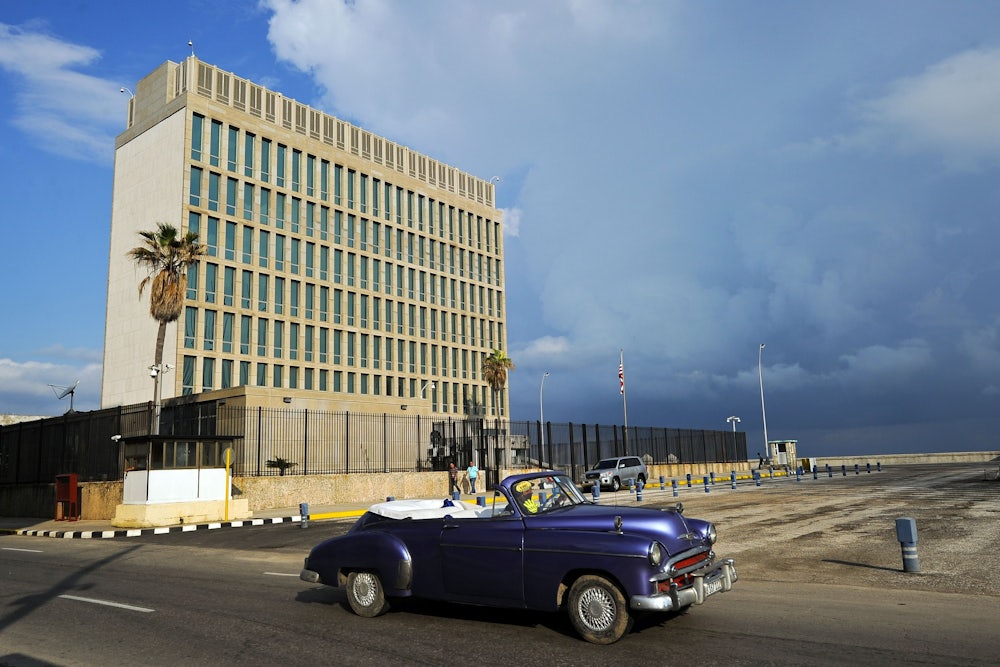NBC is reporting that there might be a Russian connection to the mysterious medical ailments experienced by American diplomatic officials stationed in Cuba and China since 2016, thought at one point to be caused by weaponized sound waves. “Intelligence agencies investigating mysterious ‘attacks’ that led to brain injuries in U.S. personnel in Cuba and China consider Russia to be the main suspect,” according to NBC News. “The suspicion that Russia is behind the alleged attacks is backed up by evidence from communications intercepts, known in the spy world as signals intelligence, amassed during a lengthy and ongoing investigation involving the FBI, the CIA and other U.S. agencies. The officials declined to elaborate on the nature of the intelligence.”
There are reasons to treat this report with a grain of salt. After all, the exact nature of the alleged weapon is unknown. The Pentagon is trying to solve the mystery by reverse engineering a weapon that can simulate what the Russians have allegedly done, with no success to date. (Having discarded the earlier “sonic” weapon theory, the Pentagon now thinks “sophisticated microwaves or another type of electromagnetic weapon were likely used,” NBC reports.) Further, the report relies on anonymous sources who seem not to have provided details of the evidence they’ve used to reach their conclusion. Finally, there’s been a pattern over the last few years of anonymous government sources concocting bizarre stories about Russian espionage which are later retracted.
In any case, the alleged Russian connection will likely have political repercussions. “If Russia did use a futuristic weapon to damage the brains of U.S. personnel, it would mark a stunning escalation in Russian aggression toward Western nations, compounded recently by the use of a military-grade nerve agent to poison an ex-spy and his daughter in Britain,” NBC News notes. “Although the full extent of the resulting diplomatic fallout is difficult to predict, a determination that Russia was behind the Cuba attacks would trigger outrage in Congress and foreign capitals and calls for an immediate, concerted response, especially as President Donald Trump faces continued questions about his willingness to challenge Russia and President Vladimir Putin.”
